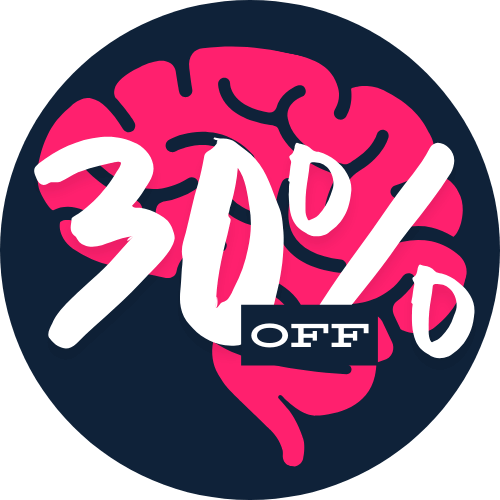The LinkedIn Puppet Master: Psychology Strings That Control Decision Makers 🎭
Ever found yourself scrolling through a never-ending feed of LinkedIn posts, wondering how some profiles garner endless engagement while yours languishes in the shadows? You’re not alone. Many professionals yearn to unlock the secrets of LinkedIn influence, particularly when trying to capture the attention of those elusive decision makers. In this post, we’ll explore the fascinating interplay of psychology and strategy that can turn you from a mere spectator into a puppet master of LinkedIn influence. Ready to pull some strings? Let’s go!

The Invisible Hierarchy of LinkedIn Influence
Before diving deep, let’s pop the hood on LinkedIn’s ecosystem. It’s more than just a digital resume; it’s a dynamic stage where professional actors make their mark. But who’s pulling the strings? Here’s the setup:
- Executive Decision Makers: These are the C-suite executives and industry titans—think CEOs, CTOs, and the rest of the alphabet soup. They’re often surrounded by an entourage of advisors, making them the top puppeteers in this play.
- Influencers: Not the Instagram variety, but those who command respect and engagement through insightful content and connection. They’re the ones creating ripples that reach decision makers.
- Regular Users: That’s you, the optimistic professionals hoping to climb the ranks. You might not have the clout yet, but with the right moves, you can ascend this hierarchy.
Psychology of Enterprise Decision Making
What makes decision makers tick? Spoiler alert: it’s not just data and analytics. Understanding the psychology behind decision-making can give you a serious edge:
- Fear of Loss vs. Desire for Gain: Decision makers are driven by two primary emotions. Frame your proposals to emphasize risks they could avoid or gains they could achieve. Everyone loves a good win-win!
- Authority and Credibility: Showcasing your expertise is crucial. When you speak, you want to sound like a sage, not a wannabe. Establishing your authority quickly can steer interest in your favor.
- Social Proof: Ever noticed how some folks have a plethora of endorsements or glowing recommendations? It’s social proof in action, creating a bandwagon effect. Align yourself with recognizable names; it’ll boost your credibility.
Status Game Mechanics
The status game on LinkedIn is a fun one. Let’s talk about how to elevate your profile status while also navigating the profiles of decision makers:
- Status Signals: Keep an eye out for common status indicators—connections, endorsements, followers. If you see someone bragging about their 500+ connections, that’s not just a number; it’s a signal of influence.
- Manipulating Status: Here’s a pro-tip: share quality content that’s both relevant and engaging. The more responses you get, the more others will see you as an authority figure.
- Projecting Authority: To start fencing in your own status, think like a director—direct your content efforts to show off your expertise. Use thoughtful articles, engaging posts, and lively videos to capture attention.
Authority Building Frameworks
Establishing your authority on LinkedIn isn’t just about who you are; it’s about what you present:
- Creating Influential Content: Different content types have different impacts. Articles packed with insight? Yes. Quick updates? Maybe not as much. Smartly leveraging your writing lets you show off your expertise like a flashy costume.
- Personal Brand Building: What’s your brand? Make sure your LinkedIn profile resonates with your personal ethos. A polished profile screams professionalism—make it pop with visuals and solid experiences.
- Networking Tactics: Networking isn’t just about connecting; it’s about engaging. Comment on posts, support your connections, and build relationships. Outreach should feel like a compelling invitation and not a desperate plea.
Attention Control Tactics
Now, let’s dive into the nitty-gritty of capturing attention on LinkedIn:
- Psychological Triggers: What catches the eye of a busy decision maker? Use bold graphics, compelling headlines, and storytelling techniques to entice and engage. The key? Create a post that feels irresistible.
- Engagement Strategies: Start conversations, ask questions, and don’t hesitate to create polls. These tactics draw attention and keep your connections looking forward to your next piece of content.
- LinkedIn Features: Utilize all of LinkedIn’s tools like articles, live videos, or even stories. It’s like throwing a big party—everyone loves a good gathering!
Strategic Vulnerability Deployment
It might sound counterintuitive, but embracing vulnerability can solidify your connections:
- The Power of Authenticity: Sharing snippets of your journey—struggles, triumphs, embarrassing moments—enhances relatability. Your audience will appreciate your honesty.
- Navigating Perception: There’s a fine line between professional and personal, but if you can toe that line delicately, you’ll create a stronger bond with your audience.
Power Dynamic Engineering
This section’s all about steering the conversation with finesse:
- Framing Conversations: Adopt a tactful approach when discussing important topics. Lead with inquiry and gentle suggestions rather than demands—it’s like a soft hand on the back guiding someone.
- Creating Win-Win Scenarios: Always try to align your goals with the interests of decision makers. Show them the potential benefits they can reap. Think of it as presenting a mutually beneficial opportunity—a two-for-one deal!
The Takeaway
Steering the LinkedIn ship isn’t just about navigating content; it’s about mastering the psychological strings that pull at decision makers. By understanding the motivations behind their actions, deploying attention-grabbing techniques, and fostering genuine connections, you can become the puppet master of your LinkedIn network.
Ready to take your LinkedIn strategy to the next level? Consider diving deeper with informative resources, such as The Focus Blackbook: 50 AI Prompts Silicon Valley Doesn’t Want You To See. With a treasure trove of tools, you can refine your approach and craft influence like a master conductor—so what are you waiting for? Get out there, and show those decision makers your moves!












